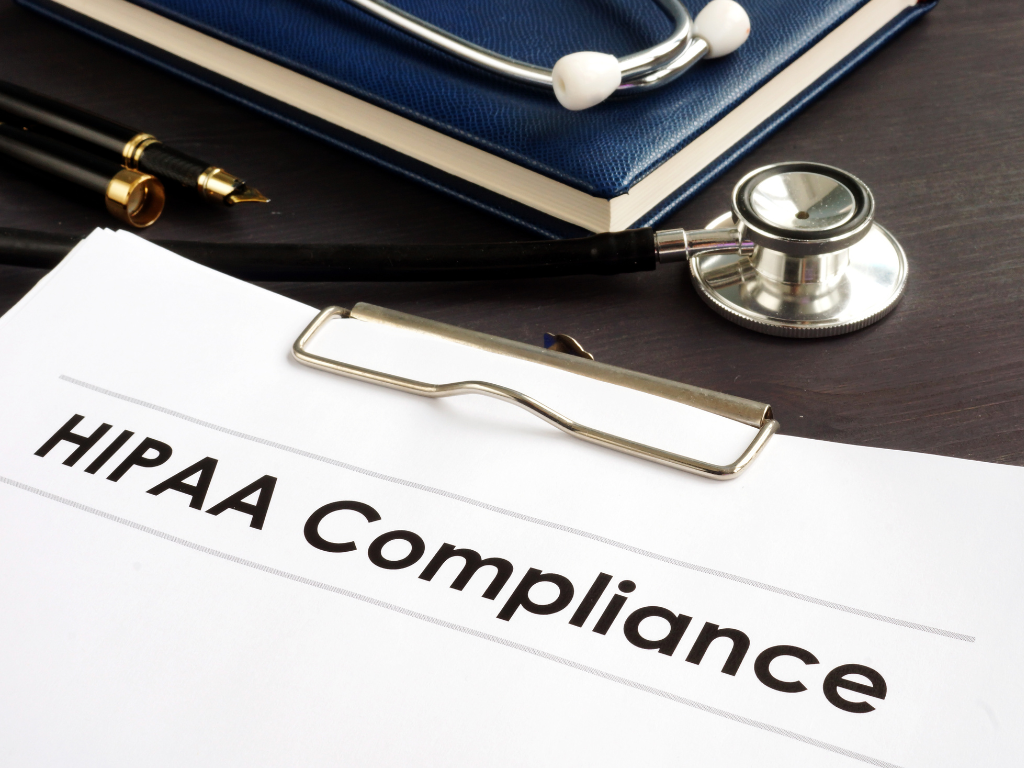Understanding the rules of the Health Insurance Portability and Accountability Act (HIPAA) is essential. It helps safeguard sensitive patient information, avoid hefty penalties, and fulfill ethical duties.
But with so many guidelines to follow, it can feel overwhelming to find a place to start. We’ll break down everything you need to know in this HIPAA implementation guide. If you’re fresh to HIPAA or aiming to enhance your current strategies, this guide for HIPAA implementation is for you. Learn how not just to meet but also maintain HIPAA compliance.
Table of Contents
Understanding HIPAA Regulations and Requirements
The HIPAA regulations are crucial to your day-to-day operations if you’re a healthcare professional. HIPAA sets rules for how health information should be used and protected. These rules are essential for electronic health data (ePHI).
They address issues of privacy, security, and how to respond if a breach occurs. Every healthcare organization must follow these specific requirements. Understanding these regulations is not a mere formality but a crucial part of providing safe, trustworthy healthcare services.
Preparing for HIPAA Implementation
For a successful HIPAA compliance implementation within your organization, a clear understanding of the roles and steps to be taken is crucial. Here’s a step-by-step approach to get you started:
Identifying covered entities
The first step is to identify the covered entities within your organization. These entities use and disclose protected health information (PHI), such as hospitals, clinics, nursing homes, and pharmacies.
If your organization falls into this category, it must ensure that all HIPAA regulations are adhered to. Get well-acquainted with the HIPAA requirements, review them thoroughly, and understand which ones specifically apply to your organization.
Appointing a privacy and security officer
With the covered entities identified, the next step is to appoint a privacy and security officer. This officer will play a critical role in ensuring your organization’s compliance with HIPAA regulations.
They are responsible for developing privacy and security policies, monitoring PHI access, leading audits, and managing staff training. It’s crucial to appoint someone competent and well-versed in HIPAA who possesses leadership skills and pays attention to detail.

HIPAA Policies and Procedures Development
Developing policies and procedures consistent with HIPAA regulations is critical in achieving and maintaining compliance. These policies should be dynamic and reflect the unique nature of your healthcare organization, aiming to address critical areas such as privacy, security, and breach notifications. Let’s delve deeper into what this looks like.
Privacy policies
Privacy policies are crucial in healthcare for handling PHI. They should detail how to get patient consent, recognize the patient’s rights to PHI, and manage PHI sharing with third parties. Also, they should define the measures taken to prevent unauthorized PHI use or exposure.
Security policies
Security policies exist to shield electronic ePHI from risks. These guidelines incorporate strategies like controlling access and data encryption. Establishing incident response procedures and formulating contingency plans are also important things to implement.
Given the evolving nature of threats, it’s important to remember that maintaining security isn’t a one-time task. You need to update these policies as new security risks emerge regularly.
Breach notification policies
A breach notification policy is a clear action plan for what to do if patient health information is leaked or compromised. It outlines steps like identifying possible breaches, informing the necessary parties, and recording the details of the incident.
Having a strong policy helps you quickly manage these situations, reducing harm to your organization and your patients.
Employee Training and Awareness
One of the essential steps for HIPAA compliance is ensuring your employees are adequately trained and aware of HIPAA regulations. It involves understanding the HIPAA training requirements and creating a culture of compliance in a healthcare organization.
HIPAA training requirements
Training all your team members in HIPAA rules is crucial and legally required. Everyone should understand how to protect patient data and the Privacy, Security, and Breach Notifications regulations.
Provide employees with training at the start of their employment, when a new rule is implemented, and periodically during their tenure. Tailor the training content to match the employee’s role and their potential interaction with ePHI. It’s also vital to remember to record all HIPAA training activities. It will serve as valuable proof of compliance.
Creating a culture of compliance
Building a culture that values HIPAA compliance in your healthcare organization is pivotal. Ensure HIPAA compliance becomes integral to your organization’s workflow and function.
Build a space where your team feels secure discussing potential HIPAA issues. Frequently reinforce the significance of HIPAA regulations and praise those who show understanding. Remember, a compliance culture begins with management and extends to all team members.

Securing Electronic Protected Health Information
You must ensure that all your electronic health records are safe. It includes implementing measures such as access controls and encryption.
Access controls
Setting up the right rules for who can see, change, or share ePHI in your organization is important. Create an access control policy that outlines each employee’s ePHI access based on their role. Use unique user identification and establish an emergency access procedure for unusual situations. For added security, keep a log of all access activities for easy tracing in the future.
Encryption and data security
Although not expressly required by HIPAA, encryption provides a significant layer of security. It converts ePHI into an incomprehensible format that remains unidentifiable even if a breach occurs. Ensure that encryption is employed during data storage and transmission, particularly across public networks. This strategy and routine security updates form a robust safeguard against threats.
HIPAA Audits and Self-Assessment
For accurate HIPAA compliance, conducting internal and external audits is critical. This way, you can keep track of compliance and detect possible issues in your healthcare operations.
Conducting internal audits
A self-assessment is a perfect starting point. Regular internal audits can help prevent breaches in HIPAA compliance. It means thoroughly examining your facility’s adherence to HIPAA regulations.
How often you want to conduct these audits will depend on the requirements and complexity of your organization. As a rule of thumb, having one every year is good. Regular auditing not only ensures that you’re up to date and compliant, but it also prepares your organization for external audits.
Preparing for external audits
Bodies like the Department of Health and Human Services’ Office for Civil Rights (OCR) often carry out external audits. Their process is much like an internal audit.
Having essential documents such as risk assessments, incident reports, and HIPAA logs easily accessible can save you a lot of trouble. Also, conducting routine internal audits can help to put your organization in a good position.
Think of audits as a chance to enhance your compliance operations, not something stressful. Audits pinpoint what needs to be developed and offer advice for better adherence to requirements.
Reporting and Responding to HIPAA Incidents
Start the reporting process as soon as you spot a potential issue. It’s a HIPAA requirement to report breaches of unsecured health information quickly. When reporting a security breach, it’s crucial to record all details. It includes what transpired, how it occurred, who was involved, and the countermeasures implemented.
As per the Department of Health and Human Services (HHS), breaches impacting 500 or more people should be reported within 60 days. For less significant breaches, you have a 60-day window from the year’s end to report them.
Responding to HIPAA incidents effectively involves identifying the source of the breach and taking steps to prevent it from happening again. By routinely assessing these incidents and updating your rules, you can help prevent future violations.
The Importance of Commitment to HIPAA Compliance
Working towards HIPAA compliance can feel overwhelming. But, with a strategic mindset, it’s achievable and vital for protecting patient data. Keep in mind HIPAA implementation isn’t a one-off event. It’s an ongoing process requiring commitment.
Building a HIPAA-compliant healthcare system not only enhances your reputation but also protects patient data. View HIPAA guidelines as an opportunity to demonstrate your dedication to patient data privacy.





